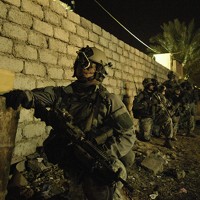This October, U.S. President Barack Obama and Republican nominee Mitt Romney will debate defense policy. That debate has the potential to be path-breaking: The national security strategy crafted immediately after Sept. 11, which led the United States into Iraq and Afghanistan, has now run its course, creating the opportunity to re-examine the very foundation of American strategy, including the reasons why the United States uses military power as well as the ways that it does so. More likely, though, the presidential debate will avoid big questions and gravitate toward immediate problems like Iran, Syria, North Korea and the size of the defense budget. Chances are, neither candidate will offer a broad vision for American strategy in coming years.
Although understandable given the pressures of the electoral cycle, the tendency of political leaders to concentrate on short-term challenges rather than on big strategic questions is also problematic. While political leaders look four or, at most, eight years into the future, military leaders must plan for a 10- or 20-year time horizon in order to build the future force. Because there is little clear guidance from political leaders that extends that far, the architects of tomorrow’s military must predict what the global security environment will look like, what threats the United States will face and what Americans will ask of their armed forces.
Prediction is necessary but risky. If the military's uniformed and civilian leaders get it wrong, the United States could someday face a threat it is unprepared for. The attacks of Sept. 11 showed the massive costs of that kind of failure. Because of the seriousness of this challenge, debate is currently raging within the military, the defense establishment and the community of national security experts about the future shape of the armed forces. Everyone knows that the U.S. military will be smaller and more efficient. The point of contention is the primary skill set the military should have.

